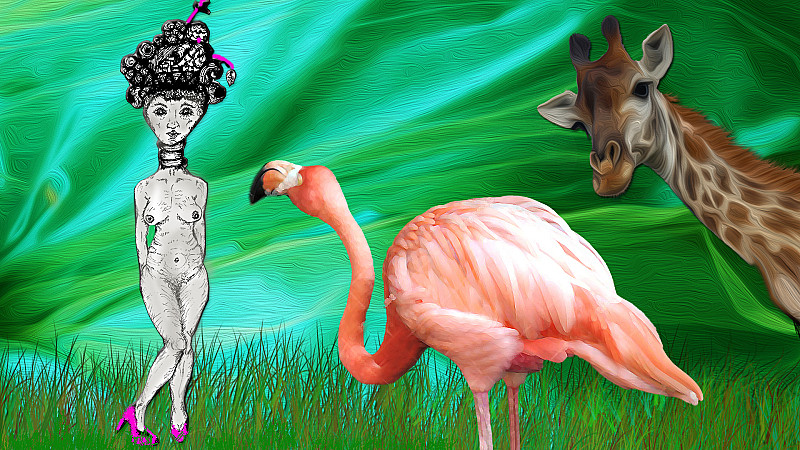- Seizure, You Leave Me Cold And Bare For The World To See
- Nathani Lüneburg
- 2024
- Digital painting, illustration and photomontage
- 1 of 5
- 30.12 x 23.5
Seizure, you leave me cold and bare for the world to see
Waking up after an epileptic seizure is a disorienting and often distressing experience, made more challenging by the presence of onlookers. For many individuals with epilepsy, the period following a seizure, known as the postictal phase, is characterised by confusion, fatigue, and emotional vulnerability. The added pressure of being observed by others can intensify these feelings, creating a complex interplay of physical and psychological reactions. The immediate aftermath of a seizure typically involves a significant degree of physical and cognitive disorientation. Upon regaining consciousness, individuals may feel an overwhelming sense of confusion, often accompanied by severe fatigue, muscle soreness, and headaches. Cognitive functions such as memory, attention, and speech may be temporarily impaired, making it difficult to understand or respond to what is happening around them. During this vulnerable state, the awareness of being observed by others can exacerbate the disorientation. The individual's attempts to reorient themselves and regain a sense of normalcy are complicated by the need to process the presence and reactions of those around them. Emotionally, waking up to find oneself surrounded by onlookers can evoke a range of intense feelings. Embarrassment and shame are common reactions, especially if the seizure occurred in a public setting. The lack of control over one's body during a seizure can be deeply humiliating, and the realization that others have witnessed this loss of control can amplify these emotions.

